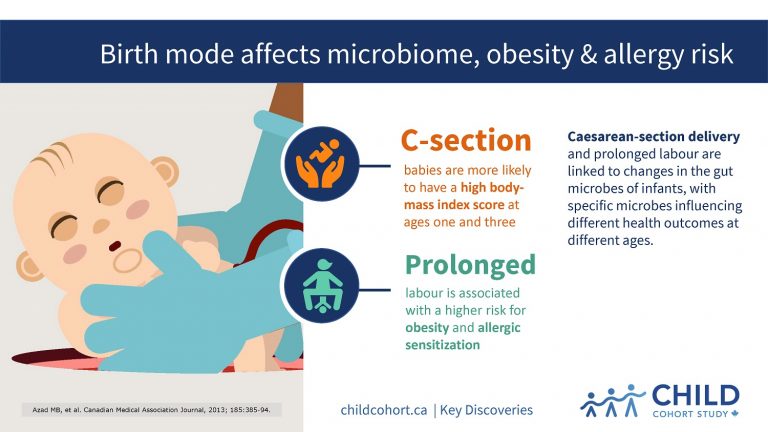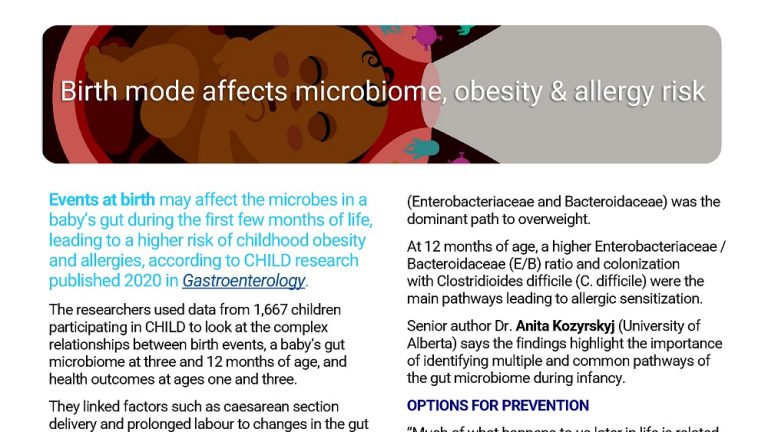Birth mode affects microbiome, obesity & allergy risk
Events at birth may affect the microbes living in a baby’s gut during the first few months of life, leading to a higher risk of childhood obesity and allergies, according to CHILD research published in October 2020, in the journal Gastroenterology.
The researchers used data from 1,667 children participating in CHILD to look at the complex relationships between birth events, a baby’s gut microbiome at three and 12 months of age, and health outcomes at ages one and three.
They linked factors such as caesarean section delivery and prolonged labour to changes in the gut microbes of infants. They then determined the pathways by which these alterations may lead to an increased risk of developing allergies and obesity later in childhood.
To conduct the study, the team collected stool samples from the infants’ diapers and analyzed the samples for gut microbes and their metabolites. At one and three years of age, the children underwent skin prick tests to check for allergic sensitization to 10 common allergens.
C-SECTION BIRTH LINKED TO HIGH BMI
The researchers found that infants born by caesarean section were more likely to have a high body-mass index score at ages one and three. When the researchers examined the children’s microbiome profiles at three months of age, they found that an altered ratio of two types of bacteria – Enterobacteriaceae and Bacteroidaceae – was the dominant path to overweight.
At 12 months of age, a higher Enterobacteriaceae/Bacteroidaceae (E/B) ratio and colonization with Clostridioides difficile (C. difficile) were the main pathways leading to allergic sensitization.
Senior author Dr. Anita Kozyrskyj (University of Alberta) says the findings highlight the importance of identifying multiple and common pathways of the gut microbiome during infancy.
OPTIONS FOR PREVENTION
“Much of what happens to us later in life is related to the exposures we encounter in infancy and early childhood,” she comments.
“Understanding how disruptions to the gut microbiome affect health in later childhood means we may have several options for effective interventions to prevent these chronic conditions before they become established.”
In earlier work in 2013, Dr. Kozyrskyj published an article in the Canadian Medical Association Journal with co-author Dr. Meghan Azad (University of Manitoba), that also highlighted the potential impact of early childhood exposures, such as the method of delivery in childbirth, as well as the method of infant feeding on lifelong health.
The 2013 article went on to receive the 2014 Bruce Squires Award that is awarded annually to the “research paper published in the journal (during the previous year) that is most relevant to the practice of medicine and most likely to impact it in a positive way.”





